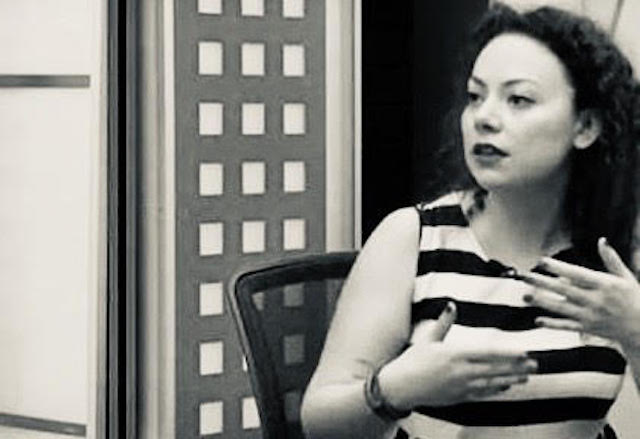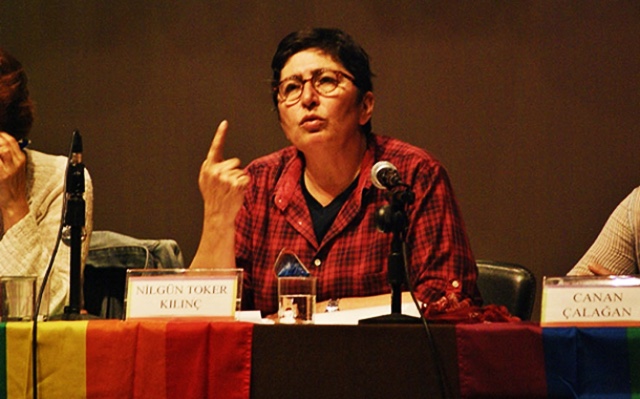Through articles by and interviews with feminists who are experts in their respective fields, 5Harfliler’s “Istanbul Convention Brief” investigates the significance of the Istanbul Convention in the fight against gender-based violence, and what it would mean for women if Turkey were to withdraw. Tuğçe Yılmaz is the editor-in-chief of the series.
As talks of withdrawal from the Istanbul Convention continue, the government is expected to release an official statement on August 5, and possibly even announce its decision. While media outlets close to the administration continue to turn a deaf ear to the collective attitude of women saying “Istanbul Convention Keeps You Alive” in the streets and on social media for weeks now, or to otherwise stigmatize it through various manipulations, women are determined to defend the Convention.
Established in 1990 by feminists to combat violence against women, the Mor Çatı Women’s Shelter Foundation is one of the organizations that know the significance of the Istanbul Convention for women from Turkey best, thanks to its vast know-how and experience. We spoke with Mor Çatı volunteer Mine Akarsu about how the Convention impacts women’s lives in practice and empowers them, based on applications received by Mor Çatı as well as witness accounts.
Let us begin with the legal aspect; what kind of gains were achieved in domestic law thanks to the Istanbul Convention?
The Istanbul Convention needs to be seen as part of the international and national developments leading up to it, as well as the various rulings of the European Court of Human Rights (ECHR). I therefore would like to emphasize that the several laws currently in effect are in fact a result of this entire course of events, and of the struggles of women, and I believe it would be more pertinent to interpret them as a whole. The Istanbul Convention is the result of CEDAW (Convention on the Elimination of All Forms of Discrimination Against Women), and its general recommendations No. 19 and No. 35, and as a consequence of the rulings passed by the ECHR against Turkey. We can say that the Istanbul Convention is indeed the pinnacle of all international enactments on the matter, created following lessons learned from previous violations and negligence.
Actually the Convention has been built upon four main pillars that we call the 4Ps (Prevention / Protection / Prosecution / Policy), that is, the prevention of violence, protecting women from violence, prosecuting the perpetrators, and actually identifying the source of the violence – which is social gender inequality in itself – and working in a coordinated manner and creating holistic policies to eradicate this inequality while doing all this.
Looking at the issue in this context, there are numerous implementations we could describe as gains. The most important is Law No. 6284. It is titled “To Protect Family and Prevent Violence against Women”, and as feminist we are critical of this title. What is the most important amendment in this law? The inclusion of sexual, psychological, and economic violence in the definition of violence. The previous law stipulated that an injunction could be awarded based on evidence of physical violence, on the assumption that violence can only be physical. With the introduction of Law No. 6284, and as a result of the Istanbul Convention, the definition of violence has been expanded, and women, children, and LGBTI+ individuals can now have a protection order granted without the requirement of evidence. Apart from that, there are many measures in the law, which indeed are reflections of the Istanbul Convention. But at the same time, there are many changes that have found their way into our daily lives in line with the holistic policies I just mentioned, even if not through the law. One such change is the Equality Departments at municipalities and the judicial interview rooms. There are also legal aid units of bar associations providing legal assistance, and ALO 183, also known as the Women’s, Children’s, and Social Services Hotline, and by the way the GREVIO report on Turkey emphasized that it should be a dedicated hotline for cases of violence only, as stipulated by the Istanbul Convention. We can call a number of such implementations and laws the victories of the Istanbul Convention. In short, the Istanbul Convention is a huge gain for women’s struggle. It is a convention written by women for women.
You mentioned that the Law No. 6284 is titled as the law “To Protect Family and Prevent Violence against Women.’’ Do this name and definition also determine a political attitude towards women?
Absolutely. Now that we have talked about the positive impact of the Istanbul Convention, I would also like to mention the GREVIO report. GREVIO is an expert body responsible for monitoring the implementation of the Convention. The body receives reports from NGOs in signatory countries and from the governments every four years, conducts on-site reviews, and publishes its own reports assessing the extent of the Convention’s implementation. Their report on Turkey criticized the state’s point of view on women.
As for the name, which is a product of the political perspective, the purpose of the enactments must be to protect women. Protecting the family and protecting women are not the same thing, and they cannot happen concurrently. If the primary objective of the state is to protect the family, this will, at times, mean turning a blind eye to violence against women. This is simply because, most of the time, we as women are subject to violence from those closest to us, from family members. Squeezing the word family in there even though it never appears in the Convention is indeed a political choice. We see the same political motivation in the official translation of the Istanbul Convention as well. For starters, “domestic violence” was translated as “violence within the family”, even though it means “violence at home” and so aims to protect persons that are not necessarily in a family union. Likewise, the word “shelter” was translated as barınak (t.n.: refuge, habitation, lodging), but the correct translation would be sığınak. This goes to show that the state’s attitude is not about preventing violence by changing its own perspective. The state is never aiming for a change in mentality.

Do you monitor the Equality Departments of municipalities? Are you tracking their implementations?
Equality Departments are not directly named in the Convention, so the implementation is naturally left to domestic legislation. The Convention clearly states that “all relevant state agencies, including the judiciary, public prosecutors, law enforcement agencies, local and regional authorities as well as non-governmental organisations” have certain “obligations in protecting and supporting victims and witnesses of all forms of violence covered by the scope of this Convention.” The equality departments must be seen in this context.
I can say this about enforcement: if municipalities are not taking responsibility in this matter, then the Convention is not being implemented. As Mor Çatı, even though we are not directly working with municipalities on their equality departments, they have an obligation to open shelters and that’s how we monitor them and get to observe their practices.
What has changed in the applications you receive for shelters? For instance, has it now become easier for women to meet their needs for shelter?
According to the information we have received through our inquiries, there are 144 shelters in Turkey with a total capacity of 3,554 people as of June 2019. We can say that this capacity is not sufficient for Turkey’s population. We can again look at the GREVIO report to see the changes before and after the Istanbul Convention. The report says, “Yes, you have increased the number of shelters after the Convention, and this is a positive development; but that figure is still not enough.” Besides, the report also assesses the quality of these shelters in addition to quantity. Since we also conduct shelter work as a feminist organization, we know full well that whether shelters are regarded merely as guest houses or places supporting women in getting away from violence and empowering them is as important as the number of beds. We know that this second purpose of shelters is overlooked in Turkey, and that they operate as guest houses that meet lodging needs of women, as implied by the name they have been given, i.e., “guest house,” which ignores the violence aspect of the issue. Women do not go to these shelters as guests; they go there to seek shelter and be empowered because they are trying to get away from violence. Even though this outlook changed somewhat after the Convention, it shows us we are not there yet in terms of both quality and quantity, and that adequate measures are not being taken.
Even though the developments in the GREVIO report are regarded as positive, the fact that women with sons older than 12 are not admitted in the shelters, that empowering policies are not being implemented, that the number of shelters is still inadequate, and that we do not have the shelter structure stipulated by the Convention means that we still have ways to go. We are certainly not dismissing the positive developments. For example, I can say that there is work ongoing for some shelters on policies to empower shelter staff, and that this is properly implemented as a provision set forth in the Convention.
A police officer shared the street address of a women’s shelter recently. What’s your opinion on that?
This was an issue we raised as Mor Çatı Women’s Shelter Foundation. Never mind the Istanbul Convention; this is in direct violation of the Protection of Personal Data Law which was enacted with sizable support in Turkey. Such incidents indicate that the Istanbul Convention is still not fully grasped. The police officer who shared this information is under the impression that this woman who is trying to get away from violence will somehow come to terms and reconcile with the violent individual. Whereas mediation is expressly forbidden in such cases. The Convention says, governments must “offer a holistic response to violence against women” and “provide or strengthen appropriate training for the relevant professionals dealing with victims or perpetrators.” You have to explain the Convention and the right point of view. And unfortunately, this is why we find ourselves on the receiving end of such incidents, because these actions stipulated in the Convention are not carried out properly, if carried out at all.
Again, recently a woman was murdered even though she had appealed to the police 60 times before. It turned out that the police never even entered the house even though she was subjected to violence inside. When policies aim to protect the family and “private life,” does that legitimize violence against women?
The protection of the family is deliberately prioritized over violence. The state, which under normal circumstances has no qualms about meddling with our private lives, anchors such cases to the protection of family in a patriarchal manner if a family is involved. The fact of the matter is that if there is violence, then there is no family to protect. When no action is taken against violence for the sake of protecting the family because “husbands will do that” or couples should “sort it out between themselves,” it leads to events that may result in death. It doesn’t matter how many times, if a woman files for protection even just once, and even if she changes her mind later, the state should be following up on it. They have to inform the woman of her rights. The attitude of “family union should be maintained” or “let’s not burden the state” costs women their lives.

‘Don’t Justify Abuse. Implement the Convention!’
We know that people opposing the Convention interpret the “socially constructed” phrasing in the text in reference to gender as “gender-neutralization” of society. What are your thoughts on this?
This needs to be made very clear. The concept of gender as a social construct was already present in the international texts predating the Istanbul Convention. The definition for social gender is provided in the CEDAW recommendation no. 19 defining violence, and in the recommendation no. 35 extending it, in protocols emphasizing that discrimination is also a form of violence, and in several ECHR rulings. Us women are subjected to gender-based violence. Trans or cis, we are all subjected to violence because we are women. And that’s what the conventions say: “If you ignore this, you will not have demonstrated a will towards resolving the issue of violence.” The Convention declares that the source of discrimination is social gender inequality, and aims to protect those subjected to violence regardless of their sexual orientation or sexual identity.
Are there any concrete examples you can share with us as to how the Convention protects women?
Let’s expand on one detail first: International conventions generally stipulate how domestic legislation should be formulated, but the Istanbul Convention includes both general provisions and special provisions which are to be directly implemented. Which means, each and every woman who was able to save her life by successfully removing herself from violence thanks to the Law No. 6284 owes that to the Istanbul Convention.
I can give you two examples where the Convention was directly implemented. The Convention secures the lives of women who are migrants, refugees, or who do not have legal status. There are no express provisions about this in Law No. 6284; however the Convention clearly stipulates that these women must be eligible for all these protection measures, regardless of whether they have a legal status or not. There are migrant or refugee women, or those with no legal status who come to Mor Çatı. There are women who we know are migrants and are under the protection provided by the law, and there women who managed to get protection through injunction rulings.
Legal assistance is yet another issue. For example, women can receive support from the legal assistance departments within bar associations. You can apply for this service if you can demonstrate that you don’t have the means to afford legal assistance. The Istanbul Convention says, “Parties shall provide for the right to legal assistance and to free legal aid for victims under the conditions provided by their internal law.” Despite the fact that the provisions of the Convention included in the domestic law are being enforced in a conflicting manner, we had referred a woman who had applied to us to the bar association for legal assistance. She had many assets registered in her name, but she was also subjected to economic violence. She had run away from home, she did not have any bank cards, and she was not authorized to use her properties. At that point the Istanbul Bar Association applied the Convention to the case, and assigned a lawyer for that woman who was subjected to violence.
There are actually quite a few practices that have been integrated in the laws. We can see the influences of the Istanbul Convention both in the Penal Code and in the Civil Code. The women whose lives were saved through the implementation of the laws are alive thanks to the Convention.
Why is the Istanbul Convention important for women, from the perspective of the Mor Çatı Women’s Shelter Foundation?
To me, the most important aspect of the Convention is the matter of holistic policy. Many other conventions say you must prevent violence, and you have to effectively investigate violence. The Istanbul Convention on the other hand tells us to “apply the 4Ps”, and it is the “Policy” emphasis out of those four Ps that distinguishes it from the rest.
By doing that, the Convention tells party states to implement practical policies, but also not ignore the fundamental goal. It tells states that in order to eliminate violence they must ensure gender equality, which it also explicitly defines. That’s the most important aspect.
Additionally, the monitoring mechanism working through GREVIO immensely strengthens our hand. The 2016 report criticizes Turkey on several points. Instead of withdrawing from the Convention, we need to look at GREVIO’s report and discuss and correct what is not being implemented. The inadequate number of shelters, failure to open sexual violence crisis centers, exposing women to secondary traumas, not considering stalking a crime – even if we can have an injunction ruling for stalking, it is not defined as a crime in the penal code- , the absence of a dedicated hotline for violence, the ALO 183 hotline operating like a general social assistance line…
As I have underlined time and time again, the state never fully grasped the issue of gender inequality underlying violence, and has been unable to reflect this in its policies. This too is explicitly criticized in the GREVIO report.
What would be the consequences of withdrawing from the Convention, can you please elaborate?
Will withdrawing from the Convention legitimize violence? No. Our Constitution talks about the violations against the equality principle as well. CEDAW, which we joined in 1985 as a state party clearly defines violence against women as discrimination in its annexed protocols. We are also party to the European Convention on Human Rights (ECHR), are we supposed to withdraw from that too? There are a number of ECHR rulings where Turkey has been convicted. Withdrawing from the Istanbul Convention will not mean violence will be legitimized.
If you want to avoid all international obligations and all legislations, then go ahead and amend the Constitution and withdraw from all conventions. But these things are no longer easy now that we have gained so much ground. Instead of withdrawing from the Convention, we should be discussing how the Convention should be implemented to the fullest extent. On a positive note, a lot of people are now aware of the Convention because of these conversations. As a Mor Çatı volunteer and feminist, I can say it’s no longer easy to take away from us what we have gained after such a long and arduous struggle. Women won’t let that happen, we won’t let that happen. We will fight it to the end.




